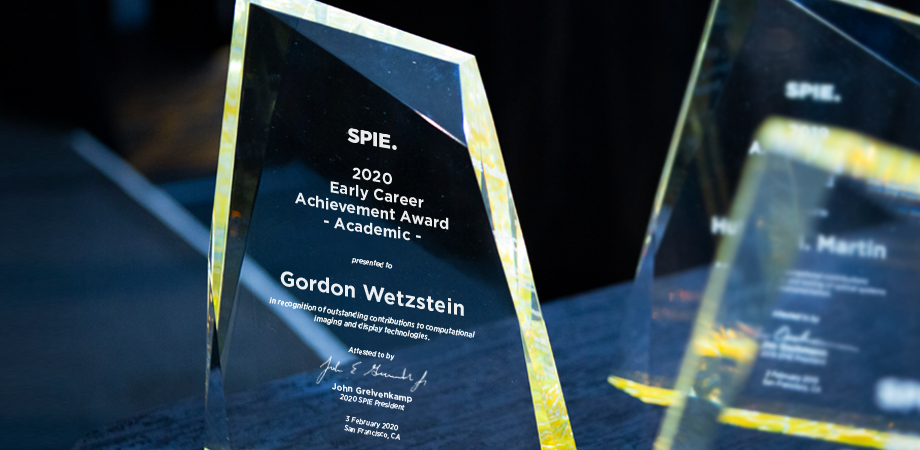Gordon Wetzstein: The 2020 SPIE Early Career Achievement Award – Academic Focus

At Stanford University, Assistant Professor of Electrical Engineering and leader of the Stanford Computational Imaging Lab Gordon Wetzstein is busy making transformational contributions to computational imaging and display technologies. His research focuses on the intersection of computer graphics, machine vision, optics, scientific computing, and applied vision science, and has a wide range of applications across next-generation imaging, display, wearable computing, and microscopy systems.
He has already been recognized with a National Science Foundation CAREER Award, an Alfred P. Sloan Fellowship, a Presidential Early Career Award for Scientists and Engineers, a Qualcomm Faculty Award, and multiple best paper, best poster, and best demo awards. His PhD thesis, completed in 2011 at the University of British Columbia's Computer Science department and entitled Computational Plenoptic Image Acquisition and Display, won the Alain Fournier PhD Thesis Award. His post-doctoral work at the Massachusetts Institute of Technology was funded by a Natural Sciences and Engineering Research Council of Canada Postdoctoral Fellowship and the DARPA Soldier Centric Imaging via Computational Cameras program.
"Gordon's core research interests lie in computational imaging and photography, i.e. at the intersection of several disciplines including optics, image processing, computer vision, photography, and human perception," notes Professor Wolfgang Heidrich, the director of the King Abdullah University of Science and Technology's Visual Computing Center. "This is an emerging research area that promises to revolutionize both photography and display technologies, as well as other applications of optics through the introduction of computation, thereby enabling more robust, less expensive, and more portable optical devices. Even more importantly, it allows for completely new imaging modalities that have not been possible so far. Gordon has a clear and articulate vision of research in Computational Photography and Displays — in fact he is probably the first to really define Computational Displays as a separate sub-area with similar but distinct challenges from Computational Photography — and has been extremely active providing leadership to the community. He is an emerging star."
Read more about Gordon Wetzstein and the SPIE Early Career Achievement Award — Academic Focus.



